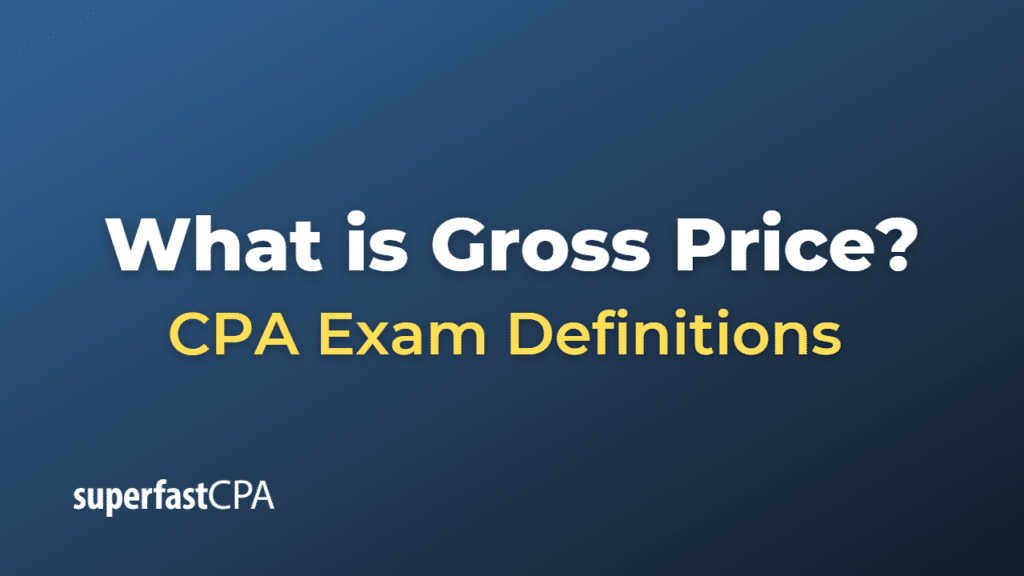Gross Price
Gross price refers to the total cost of a product or service before any deductions, such as discounts or allowances, are subtracted, but after the addition of tax or other charges. In other words, it’s the final amount a customer is expected to pay without considering any potential discounts or rebates they might qualify for.
For example, if a car is being sold for a list price of $20,000, and there’s a sales tax rate of 10%, the gross price of the car would be $20,000 + ($20,000 * 10%) = $22,000. This is the price that customers would need to pay without any discounts, trade-in allowances, or rebates.
It’s important to note that in some contexts, especially outside of the U.S., the term “gross price” may be used to mean the total price before the addition of taxes. As such, it’s always important to clarify whether taxes and other charges are included when discussing gross prices.
Example of Gross Price
Imagine you’re purchasing a new smartphone. The retailer lists the phone with a price of $1,000. However, there is a sales tax rate of 8% in your area.
The gross price of the phone, with tax included, would be calculated as follows:
Gross Price = Listed Price + (Listed Price * Sales Tax Rate) Gross Price = $1,000 + ($1,000 * 8%) = $1,000 + $80 = $1,080
So, the gross price of the smartphone, including sales tax, is $1,080. This is the amount you would need to pay without considering any potential discounts or rebates.
Remember, however, that definitions can vary, and in some cases “gross price” might refer to the cost before taxes or other fees. Always be sure to clarify whether a quoted price includes such extras.













